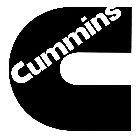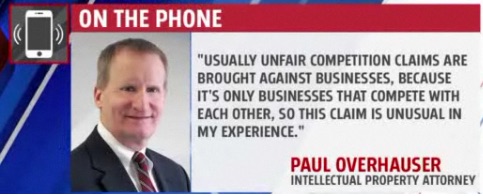Fort Wayne, Indiana – J & J Sports Productions, Inc. of Campbell, California (“J & J Sports”), via a complaint filed by its intellectual property lawyer, has sued in the Northern District of Indiana alleging that Christine Kotsopoulos, purportedly a managing member of Geo-Joe, LLP, which owns and operates Cancun Mexican Grill, all of Fort Wayne, Indiana, unlawfully intercepted and broadcast “Good v. Evil”: Miguel Angel Cotto v. Antonio Margaritio, WBA Super World Light Middleweight Championship Fight Program (the “Program”) telecast on December 3, 2011.
 J & J Sports states that it is the exclusive domestic commercial distributor of the Program. It has sued Geo-Joe, as well as Christine Kotsopoulos as an individual, under the Communications Act of 1934 and The Cable & Television Consumer Protection and Competition Act of 1992.
J & J Sports states that it is the exclusive domestic commercial distributor of the Program. It has sued Geo-Joe, as well as Christine Kotsopoulos as an individual, under the Communications Act of 1934 and The Cable & Television Consumer Protection and Competition Act of 1992.
Specifically, Defendants have been accused of violating 47 U.S.C. § 605 and 47 U.S.C. § 553 by displaying the program on December 3, 2011 without a commercial license. Regarding the claim under 47 U.S.C. § 605, the complaint alleges that with “full knowledge that the Program was not to be intercepted, received, published, divulged, displayed, and/or exhibited by commercial entities unauthorized to do so, each and every one of the above named Defendants . . . did unlawfully intercept, receive, publish, divulge, display, and/or exhibit the Program” for the purpose of commercial advantage and/or private financial gain.
A count of conversion is also included. It asserts that Defendants’ acts were “willful, malicious, egregious, and intentionally designed to harm Plaintiff J & J Sports” and that, as a result of being deprived of their commercial license fee, J & J Sports suffered “severe economic distress and great financial loss.”
In addition to naming the separate legal entity, Geo-Joe, which apparently owns the restaurant, Plaintiff has also sued Kotsopoulos alleging that she had the right and ability to supervise the activities of Cancun Mexican Restaurant. J & J Sports asserts that the activities that she supervised included the unlawful interception of Plaintiff’s program. J & J Sports contends that Kotsopoulos specifically directed the employees of Cancun Mexican Restaurant to unlawfully intercept and broadcast Plaintiff’s program at Cancun Mexican Restaurant or, if she did not, that the actions of the employees of Cancun Mexican Restaurant are directly imputable to Kotsopoulos by virtue of her purported responsibility for the activities of the restaurant.
Kotsopoulos has also been named individually as a result of J & J Sports’ contention that she is a managing member of Geo-Joe. J & J Sports further asserts that Kotsopoulos, as an individual specifically identified on the liquor license for Cancun Mexican Restaurant, had an obvious and direct financial interest in the activities of Cancun Mexican Restaurant.
In the complaint, the intellectual property attorney for J & J Sports listed the following counts and requests for redress:
•Count I: Violation of Title 47 U.S.C. § 605. For this count, J & J Sports requests (a) statutory damages for each willful violation in an amount to $100,000.00 pursuant to Title 47 U.S.C. 605(e)(3)(C)(ii), and (b) the recovery of full costs, including reasonable attorneys’ fees, pursuant to Title 47 U.S.C. § 605(e)(3)(B)(iii).
•Count II: Violation of Title 47 U.S.C. § 553. For this count, J & J Sports asks the court for (a) statutory damages for each violation in an amount to $10,000.00 pursuant to Title 47 U.S.C. § 553(c)(3)(A)(ii); (b) statutory damages for each willful violation in an amount to $50,000.00 pursuant to Title 47 U.S.C. § 553(c)(3)(B); (c) the recovery of full costs pursuant to Title 47 U.S.C. § 553 (c)(2)(C); and (d) and in the discretion of the court, reasonable attorneys’ fees, pursuant to Title 47 U.S.C. § 553 (c)(2)(C).
•Count III: Conversion. For this count, the court is requested to order both compensatory and punitive damages from Defendants as the result of the Defendants’ allegedly egregious conduct, theft, and conversion of the program and deliberate injury to J & J Sports.
Practice Tip #1: The interception claim has a two-year statute of limitations, which explains why this complaint was filed on December 2, 2013 almost exactly two years after the broadcast of the Program. J & J Sports initiated 708 lawsuits in 2011 alone. It appears that many of them were also filed near the eve of the two-year anniversary of the broadcast of the program at issue in each individual lawsuit.
Practice Tip #2: J & J Sports has sued two entities: a limited liability company and an individual who is apparently a principal in that company. While limited liability companies are intended, as the name suggests, to limit the liability of the principals, they are not always successful in doing so. Where a principal is personally involved in certain types of illegal activity, legal mechanisms (such as a limited liability company) that are designed to shield the principal from liability may fail to do so.
Overhauser Law Offices, the publisher of this website, has represented several hundred persons and businesses accused of infringing satellite signals.
 Indiana Intellectual Property Law News
Indiana Intellectual Property Law News


 technologies, including fuel systems, controls, air handling, filtration, emission solutions and electrical power generation systems. Cummins employs approximately 46,000 people worldwide and serves customers in approximately 190 countries.
technologies, including fuel systems, controls, air handling, filtration, emission solutions and electrical power generation systems. Cummins employs approximately 46,000 people worldwide and serves customers in approximately 190 countries. Redwall is a consulting and design services firm engaged in the business of strategic branding and advertising. Its services include, but are not limited to, developing a clear message and a unique visual image as well as developing brand value for its clients.
Redwall is a consulting and design services firm engaged in the business of strategic branding and advertising. Its services include, but are not limited to, developing a clear message and a unique visual image as well as developing brand value for its clients. Redwall asserts that, despite its performance in full, ESG has failed to pay to Redwall the remaining balance for the work completed. It also claims that ESG has used and continues to use Redwall’s copyrighted Design on a variety of items including, but not limited to, its website and traffic barricades.
Redwall asserts that, despite its performance in full, ESG has failed to pay to Redwall the remaining balance for the work completed. It also claims that ESG has used and continues to use Redwall’s copyrighted Design on a variety of items including, but not limited to, its website and traffic barricades. BMI is a “performing rights society” under 17 U.S.C. § 101 that operates on a non-profit-making basis and licenses the right to publicly perform copyrighted musical compositions on behalf of the copyright owners. The other Plaintiffs in this action own the copyrights to the ten compositions at issue in this lawsuit.
BMI is a “performing rights society” under 17 U.S.C. § 101 that operates on a non-profit-making basis and licenses the right to publicly perform copyrighted musical compositions on behalf of the copyright owners. The other Plaintiffs in this action own the copyrights to the ten compositions at issue in this lawsuit.

